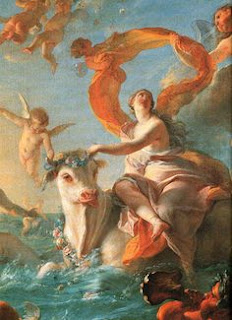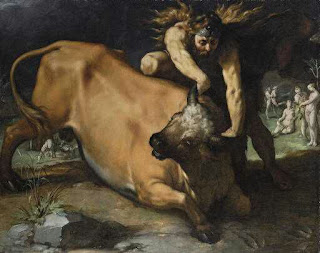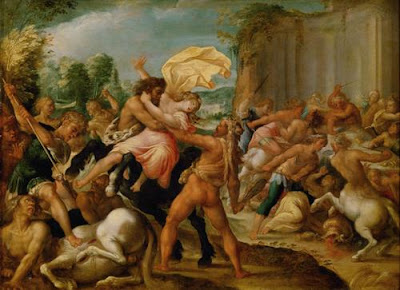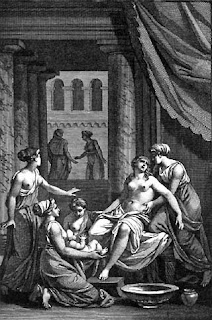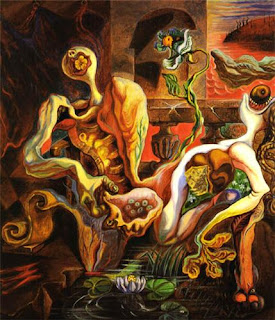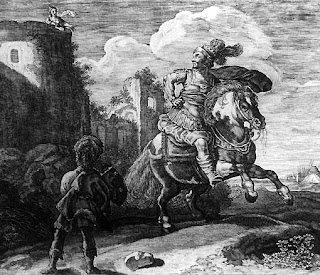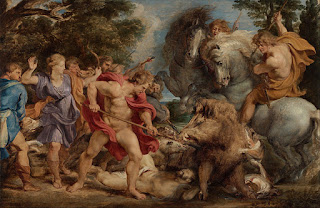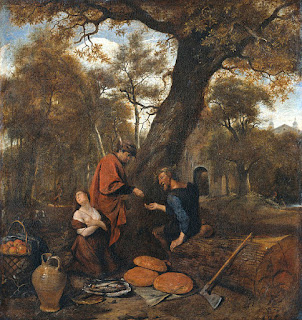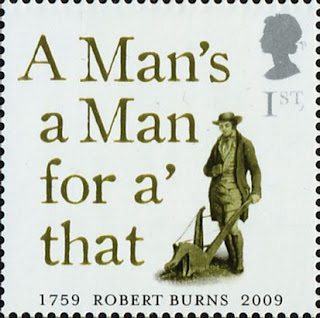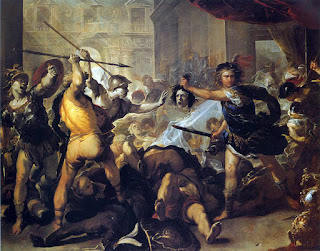Book XI
Orpheus / The Bacchantes / Midas / Troy / Peleus & Thetis / Ceyx / Daedalion / The Wolf / Ceyx & Alcyone / Aesacus
Orpheus charms the beasts and trees with his songs, and even the stones pause to listen. But the Thracian women, the Bacchantes, are enraged, accusing Orpheus of scorning them. They hurl staffs and rocks at him, intent on murder but when a stone is flung,
Circling him, the women attack, and all of their weapons would have been tamed by his sweet music, if their “shrieks and caterwauls” had not drowned it out, and they murder and dismember him. Mournful sounds fill the air as his body is carried by the Hebrus river to the coast. There, a snake attempts to attack the head, but before it can, Phoebus turns it into stone. As the Shade of Orpheus descends to the Underworld, he meets Eurydice. Side by side, they walk and they can now gaze at each other without fear.
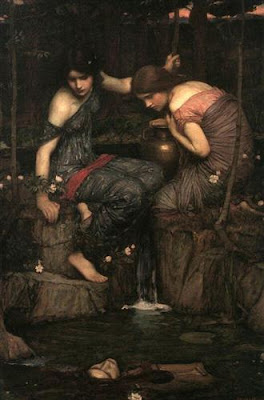 |
| Nymphs finding the head of Orpheus (1900) John William Waterhouse source Wikiart |
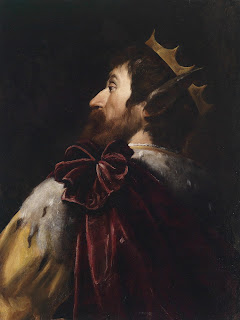 |
| König Midas (1670) Andrea Vaccaro source Wikimedia Commons |
 |
| Apollo and Poseidon Punishing Troy (c. 1590) Paolo Fiammingo source Wikimedia Commons |
 |
| The Feast of Peleus (1872-81) Edward Burne-Jones source Wikimedia Commons |
Ceyx tells of his brother, Daedalion, who had a lovely fourteen-year-old daughter, Chione. She was raped by both Phoebus and Mercury, bearing twin sons but one from each god: Autolycus, “a connoisseur of wiles and guiles”, and Phillamon, Apollo’s son, “famed for lyre and song.” Chione, because of this glory bestowed on her, now considered herself surpassing Diana’s beauty, and, for her insult, she was killed by an arrow of the goddess. At her funeral (burning), Daedalion overcome with grief, ran senselessly around, finally leaping from Parnassus’ peak, where Apollo changed him into a hawk, and “aggrieved, he makes all others mourn.”
As Ceyx relates this story, Peleus’ Phocian cowherd rushes in to announce that a wolf is ravaging the herds of oxen and terrifying the people. Peleus silently believes this event to be his penance for his crime. As they prepare to leave to deal with the wolf, Alcyone, the wife of Ceyx, begs him not to go, foreseeing his death. Thetis intervenes to pardon Peleus and helps him, changing the wolf into a marble statue. But the fates cause Peleus to travel to the land of Magnesia and King Acastus, where he is cleansed of his guilt.
Meanwhile Ceyx is still puzzled by his brother’s fate and these strange happenings, so he decides to consult an oracle on the isle of Clarus. Alcyone begs him not to go, but, while trying to calm her fears, he departs and his boat encounters a momentous storm. Before he drowns, he prays that his body will return to his wife for burial, and she finally spots it floating in the water, confirmation of her husband’s death that she had received in a dream conducted by Morpheus. As she tries to reach the body, she is changed into a bird (a kingfisher), and when she tries to cover her husband with her wings, he too changes:
 |
| Halcyone seeking her husband Ceyx (1914) Herbert James Draper source Wikimedia Commons |
An old man, as he watches the pair of birds, is reminded of another bird, a swift merganser. The bird is of the line of Ilus and Assaracus, then Ganymede, then Laomedeon, and finally Priam, who was the last king of Troy. Aesacus, half-brother of Hector (son of Priam) pursued the nymph, Hesperie, who was bitten by a serpent as she fled. Distraught, Aesacus offered his life for hers. As he leapt into the sea, Thetis pitied him and clothed him in feathers, but Aesacus so diligently sought death, he continually attempts to plunge in the sea, only to rise again. He is the diving bird, the merganser.
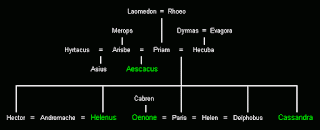 |
| source |
In this book, I noticed varying motifs on music, sound and hearing. Orpheus communicates by music, yet is drowned out by the Bacchantes’ shrieks; Apollo and Pan have a musical contest; Mt Tmolus must brush away the forest to hear; Midas for hearing ‘incorrectly’ has his ears changed to those of an ass; Proteus’ words are stopped/finished as he sinks into the sea; on Ceyx’s ship, the captain’s voice in drowned out by the “blustering winds”; Ceyx’s words are impeded by the waves; and the Cimmerian cave is a place of complete silence yet for the Lethe.
While the stories often seem random, we can experience a non-linear telling of some of the history of Troy and its heroes. The scattering make up a puzzle, if we can only pick up the pieces and fit them into the whole.
Metamorphoses
Snake ❥ stone
Thracian women ❥ oak trees
Midas’ touch ❥ gold
Midas’ ears ❥ ears of an ass
Thetis ❥ bird/tree/spotted tigress
Thetis ❥ various shapes ❥ Thetis
Daedalion ❥ hawk
Wolf ❥ marble statue
Ceyx & Alcyone ❥ birds (kingfishers)
Aesacus ❥ merganser (“diving bird”)

